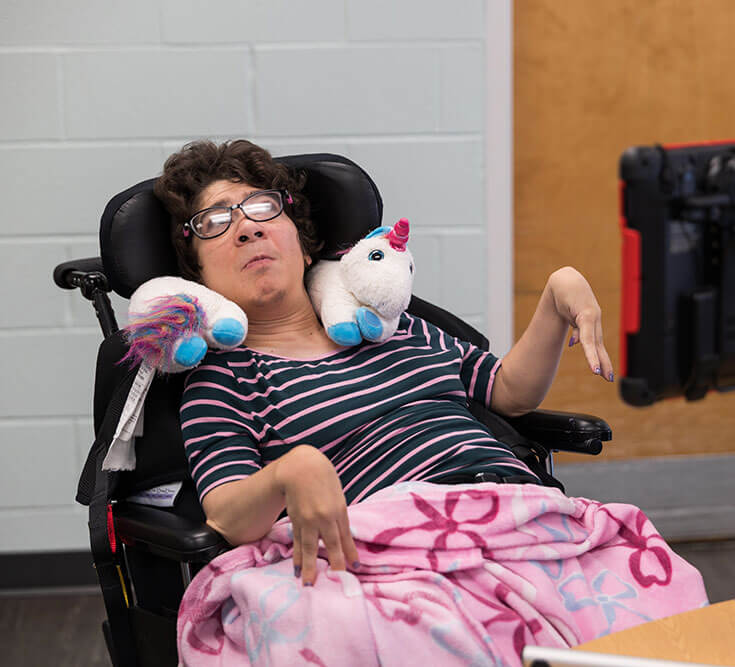Empowering Adults Through Personalized Communication Support
At Excentia Human Services, we believe every adult deserves the ability to express themselves clearly and confidently, regardless of age, diagnosis, or communication history. Our team of experienced speech pathologists, communication specialists, behavior specialists, and occupational therapists collaborate to assess, plan, and implement individualized strategies that give people their voice—whether verbal, non-verbal, or a blend of both.
Types of Communication Disorders We Support
Communication challenges vary from person to person. At Excentia Human Services, we support adults with developmental disabilities and autism through personalized therapies that improve understanding, expression, articulation, and social interaction.
Receptive Language
Expressive Language
Articulation
Social Communication

Speech and Language Therapy for Adults
At Excentia Human Services, we provide specialized speech therapy services for adults seeking to improve their communication skills, whether due to developmental conditions, neurological changes, or other challenges. Our adult-focused therapy programs promote confidence, independence, and connection across all areas of life.
General Speech Therapy
Communication Therapy
Receptive Language Therapy
Expressive Language Therapy
Non-Verbal Therapy
Ready to Talk? Let’s Begin

Answers to Common Questions
Whether you’re a family member, caregiver, or professional, we know starting something new can come with questions. Below, you’ll find answers to the most common questions about our adult behavior support services—how to apply, funding options, eligibility, and what to expect. If you don’t see what you’re looking for, our team is just a message or phone call away.
Adults with communication needs
Adults (18+) with developmental disabilities, intellectual disabilities, autism, or communication challenges may be eligible for speech and language therapy. Eligibility is often based on an assessment and may be determined by funding source or service plan.
Waiver funding may apply
Funding options vary. We accept some waiver funding and can assist you in understanding what services may be covered. Please reach out to discuss your individual situation.
Your Plan, Your Path Forward
Speech therapy sessions may take place in our outpatient clinic, in community settings, or at a residential program—depending on the individual’s needs and funding.



Connect with Us
One of our team members will contact you within 48 hours. We look forward to supporting your journey with respectful, supportive services tailored to your needs.


